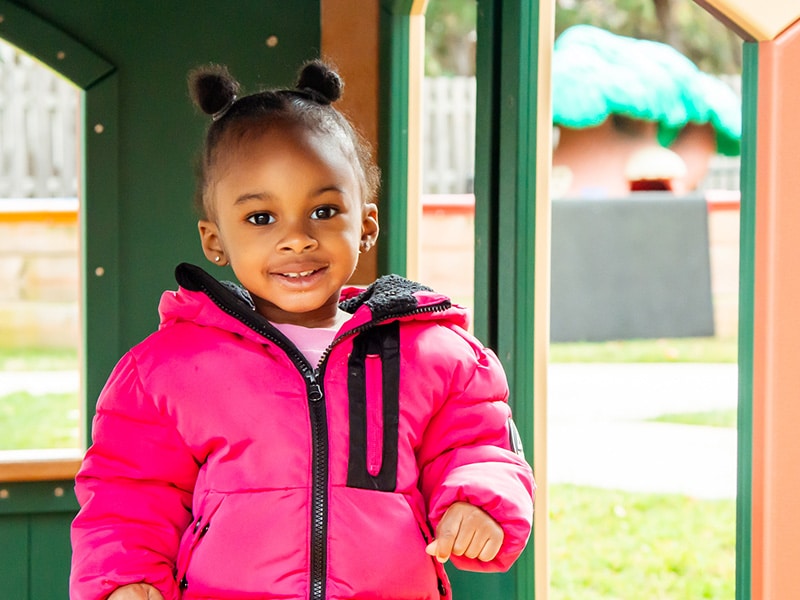Family engagement during the earliest years of a child’s life is one of the most powerful predictors of a child’s development. Families are children’s first teachers and it is the quality of parent-child relationships and interactions that create the foundational skills that children need to be successful in school and in life.
Family engagement in early education is particularly important for children in low-income families in that it helps create consistency between the home and school environments. The positive outcomes of engaged parents are powerful: increased support for children’s learning at home, empowered parents, and improved family well-being. Children see benefits like improved cognitive development and academic performance, better social-emotional development, and improved health.
It is no surprise, then, that family engagement is an essential component of high-quality early childhood care and education.
Engaging families as partners early in the educational journey allows parents to establish strong home-school connections that support their children’s achievement long-term.
What Do We Mean by ‘Family Engagement’?
The definition of family engagement can vary, depending on whom you ask in early education circles. But generally, family engagement focuses on the importance of positive, interactive relationships between program staff and parents – relationships that enhance and support children’s learning.
More recently, family engagement efforts are being co-designed along with families to promote equity and parent leadership, which is in line with how we at Start Early approach and define the concept.
At Start Early, we define family engagement as “partnering with families to build mutually respectful, goal-oriented relationships that support strong parent-child relationships, family well-being and ongoing learning and development for both parents and children.”
Our approach to family engagement involves a new way of thinking for families, staff, and program leaders. In other words, we support methods that see parents as partners, along with program staff, in creating nurturing and supportive learning environments for young children.


